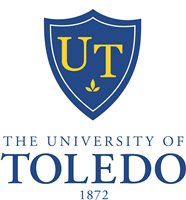- Find Your College
- Scholarships
- Pay for College
-
Articles
- COLLEGES
- Most Recent
- Affordability & Cost
- College Search
- Comparisons
- College Majors & Minors
- Myths
- News & Trends
- Tips, Tools & Advice
- Admissions
- Most Recent
- ACT & SAT
- College Admissions
- College Applications
- Myths
- Online Colleges
- Questions & Answers
- About
- Home
- >
- Browse All Majors
- >
- Biological And Biomedical Sciences
- >
- Physiology, Pathology and Related Sciences
- >
- Cardiovascular Science
Cardiovascular Science
Select Type of Degree:
Select State:
|
#1

University of Toledo
|
|||||||||||
|
*The estimated net prices above are College Raptor’s estimate. Please contact the college financial aid office for actual net cost figures.
|
|||||||||||
About Cardiovascular Science
A program that focuses on the scientific study of the structure and functioning of the heart, vascular system, and blood in animals and human beings and the disorders and diseases associated with the cardiovascular system. Includes instruction in cardiovascular physiology, blood physiology, vasculature, vascular metabolism, neural control of cardiovascular function, microvascular permeability and membrane transport, cardiac contraction mechanisms, homeostasis, and applications to topics such as arteriosclerosis, heart disease, diabetes, vascular remodeling, transplantation, transfusion, and pacemakers and artificial organs.
For all the 15 degrees granted in Cardiovascular Science per year, the majority of them are Associates degree. Out of the 2 students earning degrees at the Masters degree level across the US, 50% percent identify as men and 50% percent identify as women. While students at schools all over the country study Cardiovascular Science, Ohio has the most graduates. The average starting salary for an undergraduate degree in Cardiovascular Science is $42,090.
How popular is a Masters degree in Cardiovascular Science in OH
Careers
Majoring in Cardiovascular Science, your experience can be applied to different careers. Cardiovascular Science majors go on to pursue jobs including Medical Scientists, Except Epidemiologists and Biological Science Teachers, Postsecondary which are in high demand. Some of the top paying jobs for Cardiovascular Science majors include Medical Scientists, Except Epidemiologists, Biological Science Teachers, Postsecondary .
Top Paying Careers
These are the highest paying careers for Cardiovascular Science majors.
Most In-Demand Careers
These are the careers in highest demand for Cardiovascular Science majors.
Student Demographics




Subscribe to Our Newsletter
Join thousands of students and parents learning about finding the right college, admissions secrets, scholarships, financial aid, and more.

College Raptor, Raptor, InsightFA, FinanceFirst, and “The Right College. The Best Price.” are registered trademarks of College Raptor, Inc.




